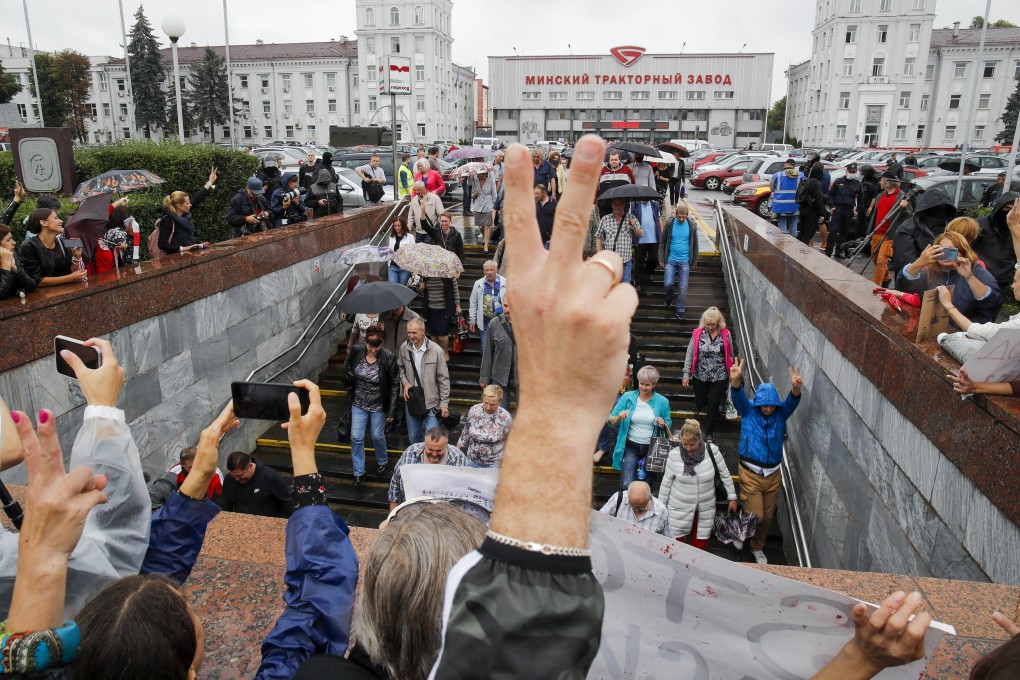China and European Union diverge on Belarus crisis as protests continue
- Beijing warns against ‘foreign forces’ wreaking chaos in Belarus
- Russia threatens to send troops to the country to quash the protests and the EU refuses to accept the election result

China and the European Union have drifted further apart on the question of Belarus, as the fate of its embattled long-time ruler Alexander Lukashenko hangs in the air amid widespread protests against his sixth election victory.
China warned against “foreign forces” wreaking chaos in the Eastern European state, while Russia threatened to send troops to Belarus to quash the protests and the EU refused to accept the election result that saw Lukashenko elected to a sixth term, calling instead for “peaceful, democratic transition of power”.
After an emergency video summit, EU Council President Charles Michel told the people of Belarus the bloc stood “by your side” as unprecedented protests against strongman Lukashenko entered an 11th day.
At least two protesters have died after being confronted by the Belarusian police, while thousands have been arrested for taking part in protests after Lukashenko declared that he won 80 per cent of votes in last week’s election.

03:13
Belarus protests against President Lukashenko continue with demands for new elections
President Xi Jinping – the first to be awarded the Order for Strengthening Peace and Friendship medal from Lukashenko in 2016 – was among the first, and few, world leaders to offer him congratulations after the election last week.